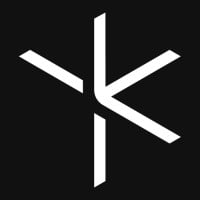A new paradigm of computing
Magic Leap is a pioneer in Augmented Reality (AR) optics, display systems, platforms, devices services, prototyping and manufacturing capabilities. We are known for our unmatched optics stack and have developed ultra-lightweight waveguides and display systems that advance what is possible in AR. With more than a decade of experience in AR innovation, we have made groundbreaking advancements in text legibility, color fidelity and rich digital content visuals while continually expanding the field of view to create engaging, immersive AR experiences.
Magic Leap could be your place if you want to be part of a united team where everyone is empowered and trusted to make an impact. At Magic Leap, you can explore innovative solutions and use your talents to solve real-world problems. Working alongside industry experts, you can grow your skills while helping make our technology available to millions of people as a partner in the mixed reality (XR) ecosystem. We know that successful change and progress accelerates diverse perspectives. As we shape our future, everyone's voice matters. Together, we can reimagine the world of work and, with our bold partners, make the impossible possible.
The opportunity
The Staff Optical Engineer will be responsible for the design of custom waveguides for Mixed Reality devices. A key emphasis on this role will be cross-functional contributions with several partner teams including waveguide manufacturing, waveguide materials, optical systems engineering, and metrology. The ideal candidate will be equally comfortable in both an optical design role and a software engineering role.
The role can be fulfilled in a remote capacity or on-site in Austin, TX, Boulder, CO, or Plantation, FL.
What you’ll do
- Serve as a key member of a newly established, lab-based experimental team focused on bridging the gap between nano-metrology and device-level optical performance.
- Design and conduct targeted optical experiments to probe the relationship between nanostructure fabrication and macroscopic waveguide performance.
- Develop and refine custom experimental setups to systematically characterize waveguide prototypes, test coupons, and eyepieces.
- Utilize and build upon optical metrology techniques to extract high-fidelity data on diffractive and polarization effects, optical efficiency, and stray light behavior.
- Work closely with fabrication, metrology, and optical design teams to create feedback loops that enhance understanding of waveguide physics and improve manufacturing processes.
- Analyze experimental results using custom and commercial software tools, to provide deep insights into the performance of novel optical architectures.
- Propose and implement new measurement methodologies to overcome existing limitations in optical characterization.
- Communicate findings effectively through technical reports, presentations, and collaboration with cross-functional teams.
The experience you bring
- PhD in Optical Engineering, Physics, Electrical Engineering, or related technical field, or equivalent professional experience in optical systems design and development.
- 8+ years of experience in software development, with a strong focus on scientific computing, numerical methods, and algorithm development.
- Expert-level proficiency in Python, including experience with numerical computing libraries (NumPy, SciPy, pandas, etc.).
- Strong background in computational modeling, numerical optimization, and high-performance computing.
- Strong comfort level with scientific programming and working with large datasets.
- Strong analytical and problem-solving skills, with a focus on developing efficient and scalable software solutions.
- Experience developing software tools for optical, physics-based, or engineering applications.
- Experience integrating commercial optical design and simulation software (such as RCWA, FDTD, BPM, Lumerical, Zemax, COMSOL, etc.) into custom workflows.
- Ability to communicate and collaborate effectively with multidisciplinary teams.
It’s exciting if you also have
- Experience with parallel computing, GPU acceleration, or cloud computing.
- Experience with C++ for performance-critical applications, including numerical libraries such as BLAS/LAPACK.
- Background in optics, computational electromagnetics, or related fields.
- Experience developing interactive data visualization tools (e.g., using Matplotlib, Plotly).
- Experience in machine learning for scientific applications.
- Experience working in an R&D environment where software directly supports experimental or manufacturing workflows.
- Familiarity with AR/MR display systems and optical hardware.
Additional Information
All your information will be kept confidential according to Equal Employment Opportunities guidelines.
All legitimate Magic Leap email communications will end with "@magicleap.com". Please carefully review all emails you receive, to ensure you only engage with legitimate representatives of Magic Leap. For the protection of your Personal Information, do not click any links, open any attachments, or further engage with any suspicious communications. In the event you receive an unexpected or suspicious communication claiming to come from Magic Leap, please reach out directly to [email protected] for assistance.
Please note that we do not accept any application documents via (e-)mail. Furthermore, we do not accept applications from recruitment agencies for this role.
Accommodations
If you need an accommodation during the application, interviewing, or hiring process, you may request an accommodation by emailing [email protected]. Magic Leap will reasonably accommodate qualified individuals with disabilities to the extent required by applicable law.
#LI-CP
#LI-REMOTE
Our salary ranges are determined by role, level and location. In addition to salary, Magic Leap offers a discretionary bonus and a fully comprehensive benefits package for eligible employees.
Top Skills
Magic Leap Boulder, Colorado, USA Office
Boulder, Boulder, CO, United States, 80301
Similar Jobs
What you need to know about the Colorado Tech Scene
Key Facts About Colorado Tech
- Number of Tech Workers: 260,000; 8.5% of overall workforce (2024 CompTIA survey)
- Major Tech Employers: Lockheed Martin, Century Link, Comcast, BAE Systems, Level 3
- Key Industries: Software, artificial intelligence, aerospace, e-commerce, fintech, healthtech
- Funding Landscape: $4.9 billion in VC funding in 2024 (Pitchbook)
- Notable Investors: Access Venture Partners, Ridgeline Ventures, Techstars, Blackhorn Ventures
- Research Centers and Universities: Colorado School of Mines, University of Colorado Boulder, University of Denver, Colorado State University, Mesa Laboratory, Space Science Institute, National Center for Atmospheric Research, National Renewable Energy Laboratory, Gottlieb Institute


